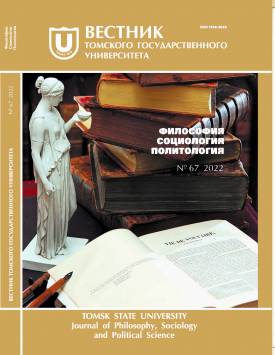Context dependence and deferred interpretation
In this commentary on Olga Kozyreva’s paper, the author points at aspects that require a more detailed discussion and justification. The author argues that Kozyreva does not lay out her proposed theory explicitly enough for one to assess how justified her broader conclusions are. If the denotation of an indexical is indeed constructed by both the speaker and the hearer, as Kozyreva suggests, then it is not clear how communication is possible assuming that communication is about transmitting content from one individual to another. The speaker must be able to construct a statement and convey its meaning to the hearer. The author also shows that the problematic cases discussed by Kozyreva in relation to the semantics of indexicals arise in cases without indexicals. The author thus argues that the explored phenomenon is broader than the semantics of indexicals. One example is the present tense in Russian, which is known for not being indexical. However, Russian puzzles that are identical to the ones described by Kozyreva are indexical. The author proposes to discuss the matter in terms of types and tokens of linguistic expressions. He outlines an approach according to which the problematic cases can be dealt with in terms of the familiar Kaplan-style semantics and Gricean pragmatics. The main point in this proposal is that maybe in the problematic cases the person who wrote the note was cooperative and assumed the context of the hearer. That person thus did not make any assertion in their own context of writing the note, but rather constructed a token for the context in which the hearer would be reading it. When the hearer (the recipient of the note) reads it, they assume that the speaker (the author of the note) was cooperative and thus could not construct a token that would be read as a contradiction in their own context. Thus, the hearer reasons, the (temporal) context that was originally assumed for the token is their current context. In more complicated cases, the speaker can reason even further: if the token they are dealing with still does not make sense in their current context, then they assume that the person who constructed the token intended some other more suitable context. The bottom line here is that it remains unclear why the problematic cases cannot be dealt with in terms of extralinguistic pragmatic factors such as manipulation of the contextual parameter that the communicators engage in. The author declares no conflicts of interests.
Keywords
semantics, context, deferred interpretation, types and tokens, pragmaticsAuthors
| Name | Organization | |
| Kusliy Petr S. | Institute of Philosophy, Russian Academy of Sciences | kusliy@iph.ras.ru |
References

Context dependence and deferred interpretation | Tomsk State University Journal of Philosophy, Sociology and Political Science. 2022. № 67. DOI: 10.17223/1998863X/67/24
